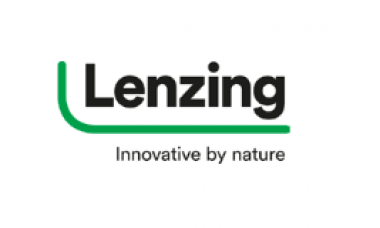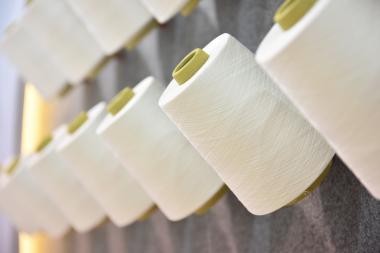New Recycled Fibre FinexTM in Stores; Sateri Partners Fashion Brands to Unveil Product
Shanghai – Sateri has unveiled FinexTM as its new product brand for recycled fibre. FinexTM, short for ‘Fibre Next’, is an innovative next-generation cellulosic fibre containing recycled content. Internationally known outdoor brand Lafuma has produced FinexTM apparel ahead of 618, China’s major mid-year online shopping festival, while independent China designer Rico Lee will launch his FinexTM apparel next month.
Since its announcement in March this year of a breakthrough in commercial production of viscose using recycled textile waste, Sateri has worked closely with its downstream yarn and garment manufacturing partners to bring the recycled fibre product to the consumer market.
“We’re pleased to collaborate with Sateri as one of their first brand partners for FinexTM. Sateri’s dedication to this partnership made it possible for Lafuma to produce T-shirts with this fine quality fibre in a short time. T-shirts made with FinexTM will be among the offerings Lafuma has in store for the 618 festival as we look to support environmentally-friendly and excellent performance solutions to strengthen our position as a leading outdoor apparel brand,” said Wu Qian, General Manager of Lafuma China.
Echoing similar sentiments is Rico Lee who established his own independent label in 2014, “I jumped at the opportunity to collaborate with Sateri when they approached me because FinexTM encapsulates what my brand stands for – Beautiful Technology that combines function and fashion.”
Tom Liu, Sateri’s Commercial Vice President said, “Like our flagship brand EcoCosy®, FinexTM is made from bio-based natural fibres. Innovation and technology has made cellulosic textile fibre recycling possible and FinexTM represents how nature not only renews itself but that products made from nature can also be regenerated. This, at its heart, is what circular fashion looks like. Our brand promise to customers remains constant– Sateri’s products are sustainable, high quality, efficient, and cost-effective. The FinexTM tagline ‘Together For A Better Next’ expresses our aspiration to be the partner of choice for next-generation fibre - we thank Lafuma and Rico Lee for pioneering with us on this quest.”
Last month, Sateri announced its entry into China’s Lyocell fibre market. The recent string of product portfolio expansion announcements is underpinned by Sateri’s business strategy to capture value. Allen Zhang, President of Sateri said, “Being the world’s largest viscose producer gives us the advantages that come with volume, but value is what we hope differentiates us. By this, we don’t only mean higher value products like Lyocell or FinexTM but also the value we bring to communities, country, climate and customers.”
Globally, less than 1% of material used to produce clothing is recycled into new clothing. This presents a big opportunity for textile fibre recycling, particularly in China which is the largest textile producing country in the world. Last month, Sateri became a council member of the China Association of Circular Economy (CACE). The company will work closely with CACE’s Textile Waste Comprehensive Utilisation Committee to establish standards and promote industrial-scale textile waste recycling. Sateri is part of the Singapore-based RGE group of companies which has committed USD200 million into next-generation textile fibre innovation and technology.
















